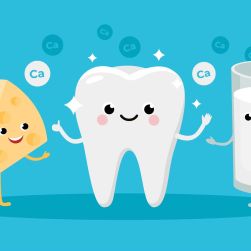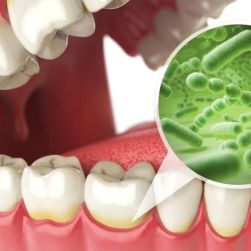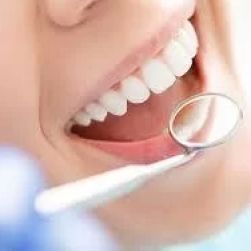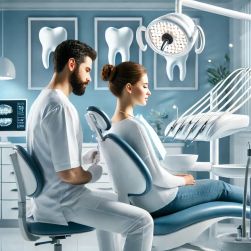Can Dental Treatment Help Manage Chronic Diseases Like Arthritis? Exploring the Connection
- The Link Between Dental Health and Chronic Diseases
- How Arthritis Affects Oral Health
- The Role of Dental Treatment in Managing Arthritis
- Practical Tips for Patients with Arthritis
- Maintaining Oral Health in Chronic Conditions
1. The Link Between Dental Health and Chronic Diseases
When we think about managing chronic diseases like arthritis, dental care often doesn’t come to mind. However, emerging research suggests that there is a significant connection between oral health and the management of chronic conditions such as arthritis. Chronic diseases, particularly autoimmune conditions like rheumatoid arthritis, can affect the body in multiple ways, including inflammation and immune system responses that can impact oral health.
On the flip side, poor dental health can contribute to the progression of chronic diseases by increasing inflammation in the body. Conditions like gum disease (periodontitis) have been linked to systemic inflammation, which can exacerbate arthritis symptoms. Maintaining good oral health may, therefore, play an essential role in managing not only arthritis but other chronic conditions as well.
2. How Arthritis Affects Oral Health
Arthritis, especially rheumatoid arthritis (RA), can directly affect the mouth and teeth in several ways. Joint stiffness and pain from arthritis can make it challenging for individuals to properly brush and floss their teeth. This limited mobility can lead to poor oral hygiene, which increases the risk of tooth decay, gum disease, and other dental issues.
Additionally, some medications used to treat arthritis, such as corticosteroids, can lead to dry mouth (xerostomia), a condition that reduces saliva flow and increases the risk of cavities, gum disease, and infections. Furthermore, certain treatments for arthritis may cause side effects like gum inflammation, which can further complicate oral health care.
Understanding the ways in which arthritis can impact oral health is crucial for developing a comprehensive treatment plan that addresses both the arthritis and the potential oral health challenges it creates.
3. The Role of Dental Treatment in Managing Arthritis
Dental treatment can play a critical role in managing arthritis and its associated symptoms. By keeping oral health in check, patients with arthritis can reduce systemic inflammation and prevent complications that could exacerbate their condition. Here are a few ways dental treatments can help:
- Regular dental check-ups: Routine visits to the dentist ensure that issues like gum disease or tooth decay are caught early, preventing complications that could worsen arthritis symptoms.
- Periodontal care: Periodontitis is a major source of inflammation in the body, which can aggravate arthritis. Dental professionals can provide treatments such as scaling and root planing to remove plaque and bacteria that cause gum disease, thereby reducing inflammation.
- Fluoride treatments: If arthritis medications lead to dry mouth, fluoride treatments can help protect teeth from cavities by strengthening enamel and reducing the risk of tooth decay.
- Advice on oral hygiene: Dentists can provide personalized guidance on how to maintain good oral hygiene despite the limitations arthritis may cause, offering tips on easy-to-use dental tools and techniques that minimize strain.
Incorporating dental care into an arthritis management plan can improve both oral health and overall well-being, helping patients feel better and avoid painful complications.
4. Practical Tips for Patients with Arthritis
If you have arthritis, taking steps to manage both your joint pain and oral health is essential. Here are some practical tips to help:
- Use ergonomic dental tools: Look for toothbrushes and floss holders with larger, easier-to-grip handles to reduce strain on your hands and fingers.
- Consider an electric toothbrush: Electric toothbrushes can make brushing more effective and less physically demanding, especially if you have limited hand mobility.
- Stay hydrated: Drink plenty of water to help alleviate dry mouth, especially if you’re on medications that cause reduced saliva production.
- Seek dental assistance: Don’t hesitate to ask your dentist for guidance on how to keep your teeth and gums healthy with arthritis. They can help you find solutions that work with your unique needs.
Implementing these tips can help make dental care easier and more effective, ensuring that you maintain healthy teeth and gums while managing arthritis.
5. Maintaining Oral Health in Chronic Conditions
Managing oral health in the presence of chronic diseases like arthritis requires a proactive approach. It's essential to maintain a consistent oral care routine, including brushing, flossing, and regular dental visits, to prevent complications that could worsen arthritis symptoms. Moreover, managing inflammation, which is a common thread in both arthritis and oral health issues, should be a priority.
By taking a holistic approach to health, including focusing on both joint care and oral hygiene, patients can improve their quality of life. Working closely with your healthcare providers, including both your dentist and rheumatologist, is key to developing an effective treatment strategy that addresses both arthritis and oral health simultaneously.
For those looking to learn more about managing arthritis through dental care, Dentistry Toothtruth offers a variety of resources, including products designed to improve oral health and help manage chronic conditions.






